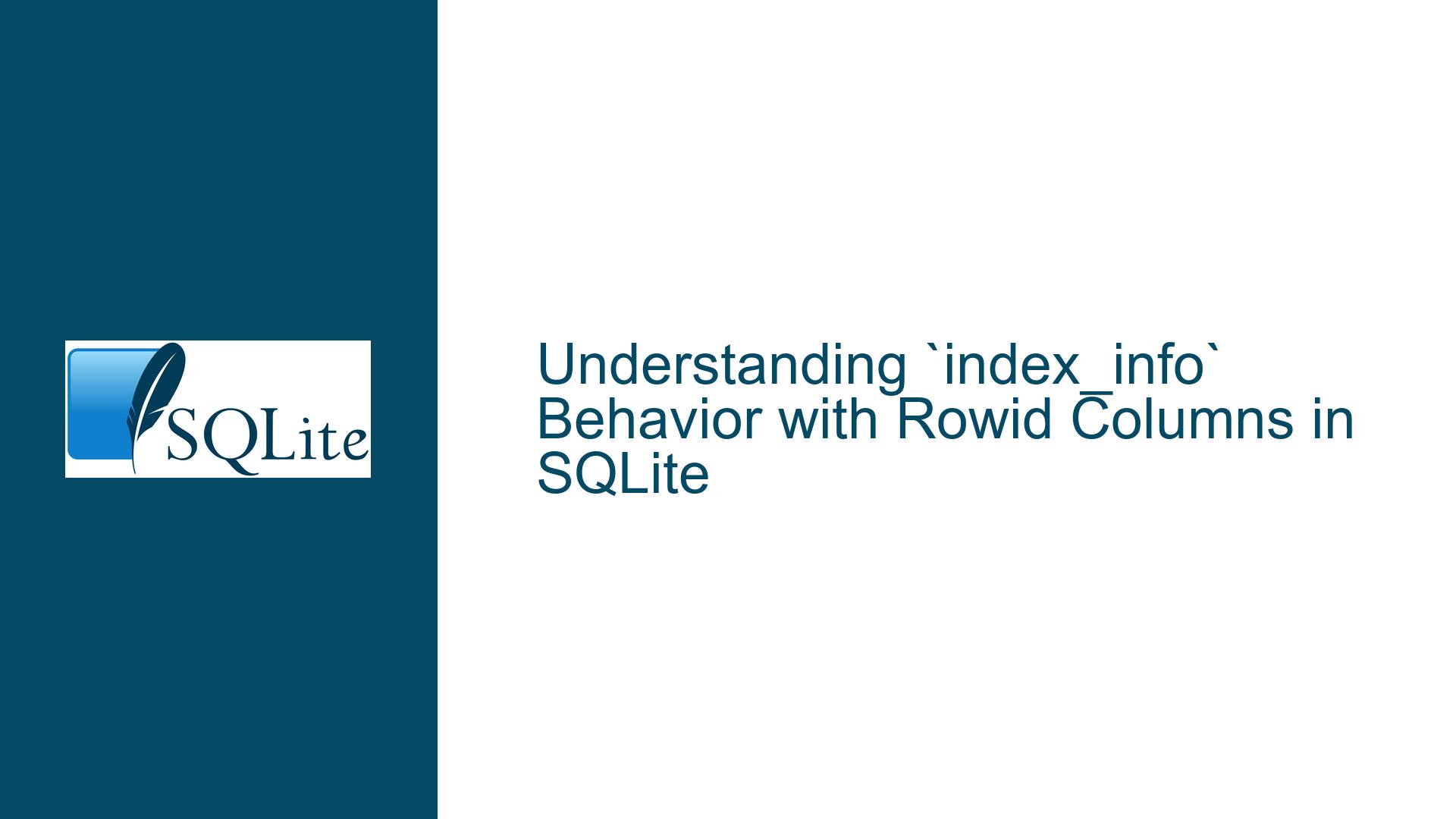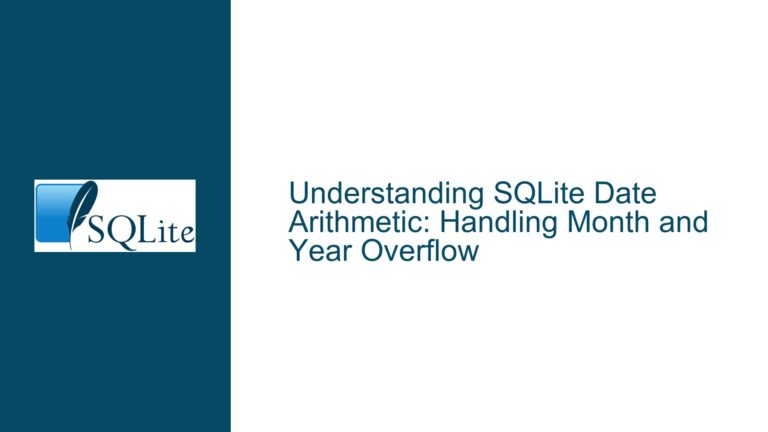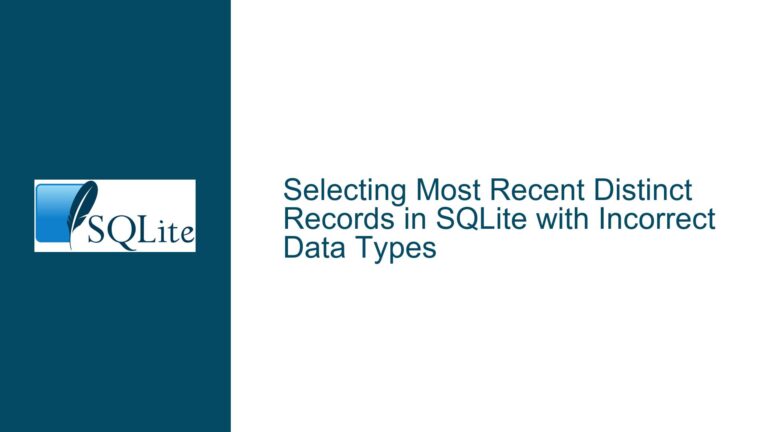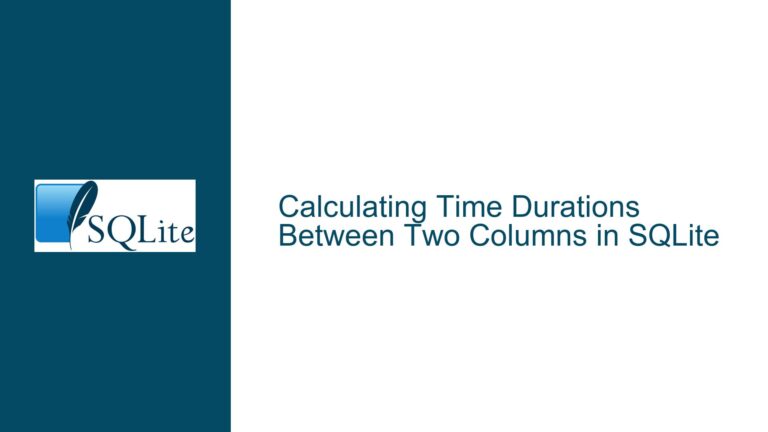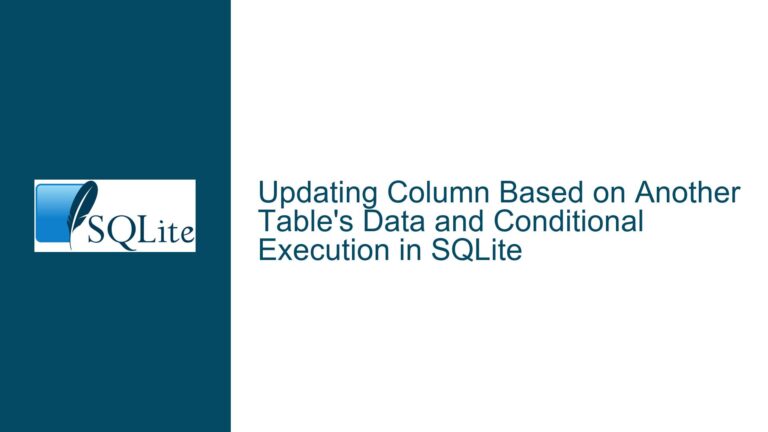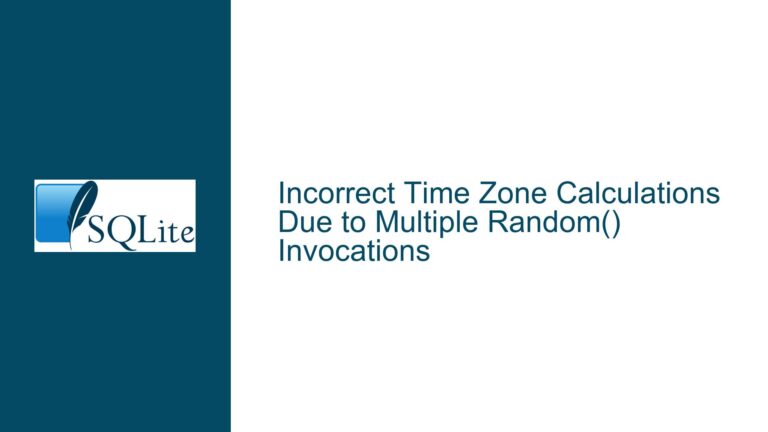`index_info` Behavior with Rowid Columns in SQLite
Issue Overview: index_info and Rowid Column Name Return Behavior
The core issue revolves around the behavior of the index_info pragma in SQLite, specifically regarding how it handles the rowid column or its aliases. The documentation for index_info states that the column name returned by the pragma will be NULL if the column is the rowid or an expression. However, in practice, when an index is created on a column that is an alias for the rowid (such as an INTEGER PRIMARY KEY column), the index_info pragma returns the column name (e.g., id) instead of NULL. This discrepancy between the documented behavior and the actual behavior raises questions about the interpretation of the documentation and the intended functionality of index_info.
The confusion is further compounded by the distinction between index_info and index_xinfo. While index_info is designed to return information about named columns and expressions in an index, index_xinfo provides additional details, including references to the rowid when applicable. This difference in behavior between the two pragmas is critical to understanding the issue at hand.
The problem is particularly relevant in scenarios where developers are working with arbitrary schemas and need to programmatically inspect indexes. In such cases, understanding the exact conditions under which index_info returns NULL for a column name is essential for writing robust code that can handle various schema configurations.
Possible Causes: Misinterpretation of Documentation and Pragma Behavior
The primary cause of the confusion stems from the interpretation of the SQLite documentation for the index_info pragma. The documentation states that the column name will be NULL if the column is the rowid or an expression. However, this statement appears to be misleading or incomplete, as it does not clearly distinguish between the rowid itself and its aliases.
When a table is created with an INTEGER PRIMARY KEY column, SQLite treats this column as an alias for the rowid. This means that the column effectively becomes the rowid, but it retains its name (e.g., id). When an index is created on this column, the index_info pragma returns the column name (id) rather than NULL. This behavior suggests that the pragma treats the rowid alias as a named column, rather than the rowid itself.
Another contributing factor is the distinction between index_info and index_xinfo. The index_info pragma is designed to return information about named columns and expressions, but it does not include references to the rowid. In contrast, index_xinfo provides a more comprehensive view of the index, including references to the rowid when applicable. This difference in behavior is not immediately obvious from the documentation, leading to potential misunderstandings.
Additionally, the inability to explicitly create an index on the rowid itself (as opposed to its alias) further complicates the issue. Since the rowid is an implementation detail and not part of the table’s explicit schema, it cannot be directly referenced in an index creation statement. This limitation means that the index_info pragma will never encounter a situation where it needs to return NULL for the rowid itself, as the rowid is always referenced through its alias in an index.
Troubleshooting Steps, Solutions & Fixes: Clarifying index_info Behavior and Best Practices
To address the confusion surrounding the index_info pragma and its behavior with rowid columns, it is essential to clarify the intended functionality and provide guidance on best practices for working with indexes in SQLite.
1. Clarifying the Documentation:
The documentation for the index_info pragma should be updated to clearly distinguish between the rowid itself and its aliases. Specifically, it should state that the column name will be NULL only for expressions and the rowid itself, but not for rowid aliases (e.g., INTEGER PRIMARY KEY columns). This clarification would help developers better understand the behavior of the pragma and avoid potential misunderstandings.
2. Understanding the Role of index_xinfo:
Developers should be aware of the differences between index_info and index_xinfo. While index_info provides a simplified view of the index, focusing on named columns and expressions, index_xinfo offers a more detailed perspective, including references to the rowid when applicable. When working with arbitrary schemas, it is often beneficial to use index_xinfo to obtain a complete picture of the index structure.
3. Avoiding Redundant Indexes on rowid Aliases:
As noted in the discussion, creating an index on a rowid alias (e.g., an INTEGER PRIMARY KEY column) is redundant, as the rowid is already indexed by default. Developers should avoid creating such indexes to conserve disk space, memory, and CPU resources. Instead, they should rely on the implicit index provided by SQLite for rowid tables.
4. Handling Arbitrary Schemas:
When working with arbitrary schemas, developers should account for the possibility of rowid aliases and understand how they are treated by index_info and index_xinfo. Specifically, they should be prepared to handle cases where index_info returns a column name for a rowid alias, rather than NULL. This understanding is crucial for writing robust code that can correctly interpret index information across different schema configurations.
5. Testing and Validation:
To ensure that their code behaves as expected, developers should thoroughly test their implementation with various schema configurations, including tables with INTEGER PRIMARY KEY columns and indexes on those columns. By validating their code against different scenarios, developers can confirm that it correctly handles the nuances of index_info and index_xinfo.
6. Leveraging SQLite’s Internal Mechanisms:
Developers should familiarize themselves with SQLite’s internal mechanisms for handling rowid columns and indexes. Understanding how SQLite manages rowid aliases and implicit indexes can provide valuable insights into the behavior of index_info and index_xinfo. This knowledge can help developers make informed decisions when designing and working with SQLite databases.
7. Community and Support:
Finally, developers should actively engage with the SQLite community and seek support when encountering ambiguities or unexpected behavior. The SQLite mailing list, forums, and documentation are valuable resources for clarifying questions and resolving issues related to index_info, index_xinfo, and other aspects of SQLite.
By following these troubleshooting steps and best practices, developers can effectively navigate the complexities of index_info and index_xinfo in SQLite, ensuring that their code is robust, efficient, and capable of handling a wide range of schema configurations.
